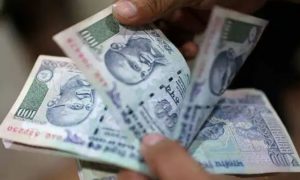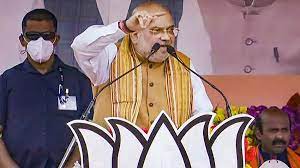Monsoon can lead to dry, flaky scalp and dandruff. Not to forget frizzy and breakage prone hair
Monsoons are a harbinger of joy, peace, happiness and serenity. A respite from the hot and scorching heat of summer. While monsoon brings tranquility to our senses, it does come bearing scalp and hair woes.
Increased levels of humidity in the atmosphere play havoc with hair and scalp skin. This weather can lead to dry, flaky scalp and dandruff. Not to forget frizzy and breakage prone hair.
Dandruff presents as white fine scales on the scalp. It usually aggravates in winters and in monsoons. “The scalp forms as biocenose for various organisms such as Staphylococci spp., Propionibacterium spp., and Malassezia spp. A person suffering from dandruff has 1.5-2 times normal growth of Malasseziz,” says Dr Neha Sharma, Dermatologist Founder Estique clinic, Gurugram.
Any kind of excessive moistness on the scalp becomes a breeding ground for fungus. Monsoon in particular and the use of hair oils and hair gels increase the moistness on scalp contributing to dandruff. “Malassezia fungus breeds faster during the summer months, but it also finds perfect conditions to grow in the monsoon season. This is one of the primary reasons why our scalp becomes itchy. Sebum is the oily substance produced by the body’s sebaceous glands and tends to collect very easily on the scalp in humid conditions,” says Dr Anup Dhir, senior consultant, Apollo Hospital and ex-president, Indian Association of Aesthetic Plastic Surgeons. Microbes tend to feed on this sebum to breed, which explains increased risk of dandruff during monsoon.
EASY WAYS TO GET RID OF DANDRUFF
The easiest way of treating dandruff is frequent washing. Minimise using hair oils and hair gels especially in monsoon.
“If applying hair oil, the best hair oil for monsoon related dryness is bhringraj and olive oil. Its rich fatty acid, is the best solution for all your dry scalp related issues, says Ujjawal Ahuja, Director, Jovees Herbal.
Use an effective anti-dandruff shampoo which has active ingredients like zinc pyrithione , piroctone olamine, or Ketoconazole which control the fungus and yeasts. These shampoos can be used twice or thrice a week.
“Coming to hairstyle lovers, it’s a wise decision to replace hair gels with hairsprays or hair creams. Further, you can use a hair mask once a week to give a deep conditioning treatment to your hair. Thus, it adds a protective layer that can reduce the risk of damaging your hair during monsoon,” Ms. Pooja Nagdev, Aromatherapist & Cosmetologist & Founder, Inatur.
Keep hair dry and apply household products like apple cider vinegar, coconut oil and lemon, neem juice, fenugreek seeds, orange peel, green tea, olive oil and basil leaves on hair. These home remedies will help you get rid of dandruff permanently.
“If you use gel regularly then wash your gelled hair frequently. Also, don’t leave in that gel for more than a couple of days, as it creates a havoc with the sebum production,” adds Ahuja.





































